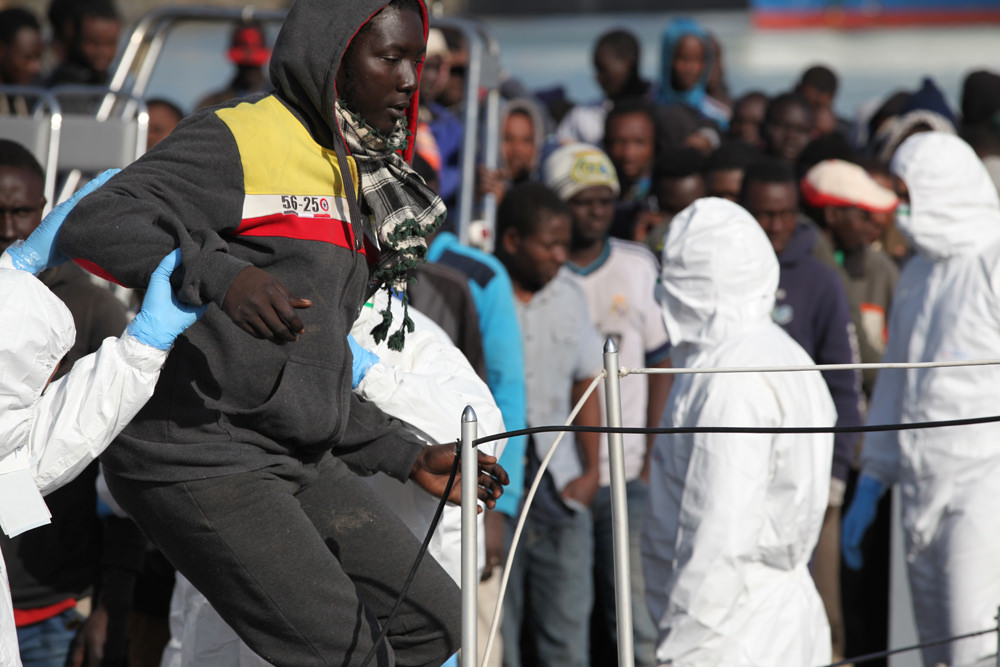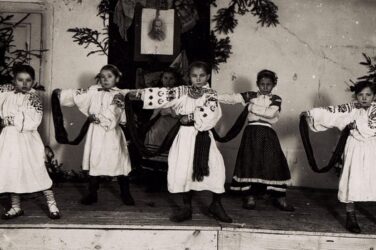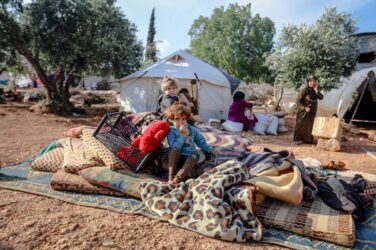In light of the latest deadlock in the Mediterranean, where the stranded Mission Lifeline rescue boat finally disembarked in Malta, Marc Tilley asks how we lost our humanity. In this article, he looks back into what allowed this criminalisation of NGOs.
Blaming the patient for the illness or the victim for the crime is a common response in our societies: we need to identify a culprit for our social ills. Especially in the current populist atmosphere, scapegoating is a temptation for the authorities, as they try to deflect blame and want to fuel the mistaken assumptions of their electorate.
François Crépeau
United Nations Special Rapporteur on the human rights of migrants
In August 2014, the MY Phoenix embarked on an ambitious mission to rescue drowning migrants lining the Central Mediterranean Route; trapped between the international community’s disjointed humanitarian response and growing regional instability. Quarter of a year, and approximately 3,000 relieved faces later, the Migrant Offshore Aid Station in Malta (MOAS) announced itself as the first privately funded humanitarian player in an increasingly chaotic circus, filling a small but meaningful role where state actors had otherwise fallen short.
MOAS´ gradually growing profile on the Mediterranean, coupled with the worsening situation in Libya, drew the attention of many, eventually culminating in today’s picture of 10+ Search and Rescue NGOs, endless political posturing and a shameless European divide on the value of human life. Here, things got complicated. War, failing regimes, drought, lawlessness, brutal exploitation, and persecution; all thankfully distant fears for the majority of Europeans, yet a painful, daily reality for so many of our neighbours.
As the Middle East and Africa started haemorrhaging men, women and children to an unknown fate, governments found themselves frantically balancing electoral prospects with strategic and economic interests, against an unsustainable and occasionally militant civil society response. Civil society, framing this multi-dimensional humanitarian crisis exclusively as a life-saving exercise, however well intentioned, can be considered guilty of anything from naivety to moral blackmail. Equally, governments can very easily find their narrative control slipping into the hands of a wilfully provocative and unsympathetic media. This breeds dangerous friction in the complex machine of collaboration needed to address the European migration phenomenon in a meaningful way.
International Maritime Law
Legislation on the issue is incredibly complex, perhaps more so than parties on either side of the debate would like to admit. However, it would be irresponsible not to touch on the legal foundations which allow such relentless criminalisation to take place by the Italian authorities in pursuit of electoral viagra.
“International Maritime Law…” is a phrase often thrown about with the conviction of a winning pub-quiz answer. Yet, this actually refers to a broad, and occasionally conflicting, body of legislation with varying interpretations and credibility around the world.
The most prominent treaty on this, the UN Convention on the Law of the Sea, empowers all coastal states with the right to “promote the establishment, operation and maintenance of an adequate and effective search and rescue service regarding safety on and over the sea”. Twinned with a legal obligation to render assistance in the case of emergencies, it would appear Libya has a clear, internationally recognised mandate to provide coastguard capabilities within its own defined Search and Rescue area. However, this quickly becomes politicised and practically impossible to implement because Libya is a factious and divided state. The UN Security Council has chosen to recognise Tripoli’s Libyan Government of National Unity, despite only holding authority over a fraction of the coastline. The numerous factions are uncoordinated, rife with corruption, and often at war with each other. At their worst, even complicit with smuggling operations.
This is clearly inconsistent with safely managing mass migration and combating trafficking, so the responsibility fell reluctantly to Malta and Italy, the only surrounding powers with the reach and resources to help. The article encourages this, specifically outlining “…mutual regional arrangements cooperate with neighbouring States for this purpose”.
How a search and rescue system came about
Therefore, Mare Nostrum was born – Italy’s national humanitarian response mission to the mass drownings in the Central Mediterranean. Initially very successful, the mission came at high economic and social costs to Italy, breeding strong resentment of their Mediterranean neighbours’ perceived inaction. In assuming responsibility for this crisis, however, Italy had pinned itself to a long and unpopular commitment of bringing their rescued migrants back to Italy where they could be processed, treated and cared for.
Following this model, but with a mandate focused on border control and law-enforcement, two multinational EU missions followed shortly after. While this was going on, the MV Phoenix (cast your mind back to the opening sentence, when you were still awake) was rescuing migrants under strict directions from Rome’s Maritime Rescue Coordination Centre (MRCC), taking them to predetermined reception centres, designated exclusively by the Italian authorities.

Malta’s strategic location would have provided a reasonable choice to manage civil society’s rescue efforts, had it not rejected a 2006 amendment to the International Convention on Maritime Search and Rescue, specifying that obligation for safe disembarkation belongs to the SAR region. While completely legal within the treaty, this was problematic in practice, severely blurring Malta’s responsibly in any future rescue operations. Instead, Italy was the logical alternative, having already taken the operational lead and put in place migrant reception centres.
This system was then applied to all subsequent NGOs operating in the region, creating the false but widespread impression that Italy was the chosen destination of the migrants, when in fact the disembarkation process is entirely dictated by the MRCC, along with technical oversight for complicated rescues involving the transfer of migrants from different vessels. The European Commission has been advised by Frontex (the European Border and Coastguard Agency) to include Tunis as a safe port of reception, but this was wisely rejected in the absence of Tunisian asylum laws or protection.
I feel this is a particularly important point to stress, in light of the relentless human trafficking accusations plaguing ordinary people committed to an exceptional act of selflessness. Political ambition had found its meaty scapegoat, and the charge sheet grows longer each day, perhaps eventually culminating with JFK’s assassination.
I feel this is a particularly important point to stress, in light of the relentless human trafficking accusations plaguing ordinary people committed to an exceptional act of selflessness.
How NGOs became criminals

Undeterred by mounting pressure from global humanitarian organisations, the European Union External Action Service’s Operation Sophia launched an ambitious but premature plan to empower the newly formed Libyan National Coastguard with tasks far beyond its ability. As the inevitably preventable deaths, botched rescues and reckless manoeuvres started to mount, the tide turned heavily against migrant assistance in southern Europe, both literally and metaphorically.
As I painstakingly described above, NGOs are not guilty of anything more than potentially failing to embrace the thorny political framework in which they operate. However, this narrative did nothing to placate the residents of Sicily feeling, quite understandably, overrun and abandoned by the wider European community. It is here that migrants became pawns in a moral arms-race, simultaneously overlooked in the political conversation yet caught in the crossfire of its repercussions.
This boosted a resurgence of the favoured a resurgence of the far-right, uniting a frustrated people against a perceived common enemy; a vulnerable and defenceless enemy. In May 2017, the Chief Prosecutor of Catania made extraordinary allegations against NGOs- baseless claims of aiding human trafficking, built on undisclosed evidence. The excitement was short-lived and the claims withdrawn following a public hearing and apology by the Italian Justice Minister.
The far-right’s breeding ground had now been fertilised with a familiar ingredient: the uniting of a frustrated people against a perceived common enemy, a vulnerable and defenceless enemy at that. In May 2017, the Chief Prosecutor of Catania made the first of several extraordinary allegations against NGOs- baseless claims of aiding human trafficking, built on undisclosed evidence. Political ambition had found its meaty scapegoat, and the charge sheet grew longer each day, perhaps eventually culminating with JFK’s assassination. Fortunately for justice, however, the excitement was short-lived and the claims withdrawn following a public hearing and apology by the Italian Justice Minister.
“The far-right had uncovered a secret weapon to cripple the flow of migrants: vilifying their rescuers as race traitors and criminals.
However, in the age of information warfare and headlines, the reputational damage was irreparable. The time, energy and cost attached to this public battle could not be replaced. Instead, it was diverted from potentially saving lives. Most dangerously of all,, the far-right had uncovered a secret weapon to cripple the flow of migrants: vilifying their rescuers as race traitors and criminals. Disregarding the fact that 2/3 of the migrants rescued were by Italian military vessels, reactionary organisations like Defend Europe were born, deliberately endangering civilian maritime operations in the name of a misguided, juvenile crusade against desperate, vulnerable people. There are few things in life more universally abhorrent than bullying. Flexing your own freedom and enormous disposable capital to toy with others’ lives at sea and deny them access to fundamental rights seems like little more than that.
In August 2017, Jugend Rettet, a smaller NGO had their boat arbitrarily detained on an incredibly flimsy legal basis by the Italian authorities. Six short months later, Spanish rescuers Open Arms found themselves in the same position, victims of judicial schizophrenia and a newly developed intimidation strategy by the Italian authorities. As anticipated these dirty tricks intensified under Salvini’s Deputy Premiership. A precedent had been set, this pattern continues, and the Italian Prime minister has now announced he will close ports all summer to the trans-Mediterranean “human flesh”. Following the calls of those who shout loudest, anyone hoping to cling onto power could now be heard condemning the NGOs. They had become the confused focal point of anger that was previously reserved for the European Union, genuine human traffickers and the migrants themselves. This boat-shaped demon was the manifestation of every asylum-seeker who had wronged an Italian.
A way forward?
I urge those with even just a passing interest to challenge themselves and read between the headlines; to humanise the people being reduced to numbers and cargo in the media. Equally, it’s very easy to make sweeping statements when I’m largely unaffected by what must be an exasperating time for the residents accommodating such an unsustainable process. For the occasionally-valid protests not to be dismissed as racist bile, they need to form real, considered debate with the powers at play, not vitriolic hate speech. I’m not blind to the secondary victims of this crisis, nor am I naive to think mass-rescues will be anything other than a treatment until EU-wide consensus can be found. This must be reached humanely, because, unless a structured dialogue is achieved, the value of life will plummet, and dangerous rifts will continue to grow. The Mediterranean sea was once the lifeblood of a continent, allowing riches, trade, opportunity and movement to the region. Imagine if we allowed that same gift to become the poisonous chasm which swallows our dignity, along with the 35,000 lives we’d rather ignore.
There is no easy solution but, after several years, structured dialogue is beginning to take effect. I don’t envy those institutions charged with resolving the unsolvable issue of our time; wrestling budgetary constraints, political whims, diplomatic pressures and ever-changing priorities.The European Union’s next budget will be voted on in the coming months, and I’m feeling loosely positive. Border management will receive increased funding, and an enhanced mandate aimed at rescuing people earlier along migration routes. Continued backing and cooperation with UNHCR and IOM in Libya will see the asylum process possibly managed from regional centres in North Africa. A fairer asylum distribution policy across the EU could see the social and structural impact minimised in coastal countries, and finally, strategic development policy to support prevention rather than cure; addressing the root causes of forced migration at source.
Is this enough? Almost definitely not. It will take time. And money. And genuine care. The Libyan National Coast Guard will remain a force unto themselves, thousands more will be likely condemned to detention camps, the ruthless hands of traffickers and forced labour. It’s not perfect, but it’s a start. Once we realise we are not enemies, and NGOs, governments and communities need to work together, maybe we’ll understand that putting the migrants first is the only sustainable way forward.
If you get back to a historically accurate narrative that migration has been a positive, then you can get a more sensible dialogue.
William Lacy Swing, IOM Director General
Cover photo: Thomas Kieselbach (flickr), CC BY-NC 2.0





